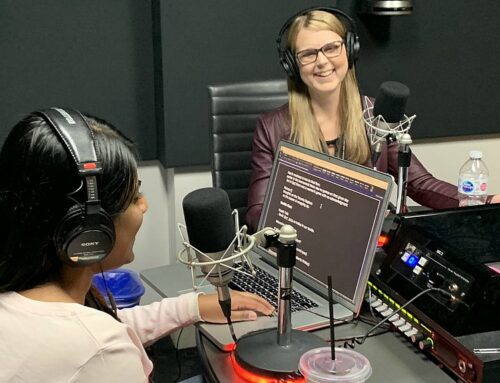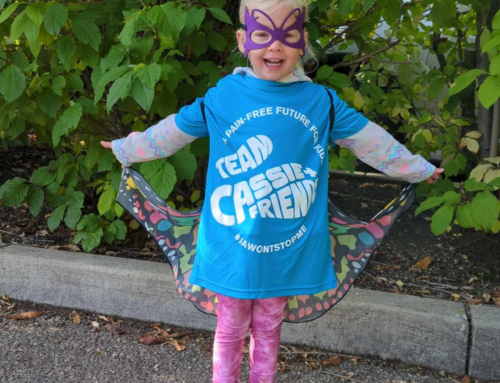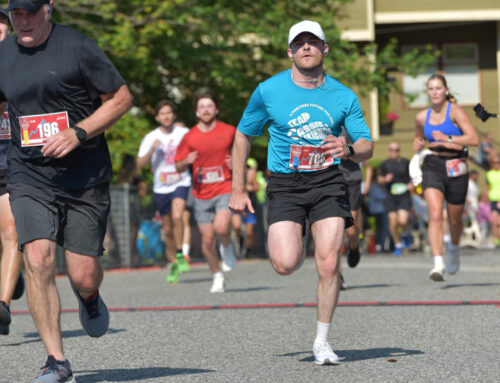For many children with JIA or other rheumatic diseases, physical challenges at school can be huge barriers, particularly when it comes to gym class. In a recent study, researchers found that 38% of kids with JIA were unable to participate in gym with their peers. Paired with misunderstanding and lack of knowledge on the part of teachers and classmates, this can results in social concerns and anxiety about being unable to complete school related activities, being treated differently and looking like they’re not trying.
To dispel some of this misunderstanding, Dr. Tommy Gerschman, Pediatric Rheumatologist specializing in pediatric sports medicine, exercise and health, answers six essential questions about participating in sports and gym class with JIA.
Can children with JIA participate in PE or gym classes at school?
Yes! Physical activity is key to healthy development of children, including those with JIA. Current Canadian guidelines recommend that children aged 5-17 years of age participate in at least 60 minutes of moderate-vigorous physical activity per day. For at least three of these days the activities should promote muscle and bone strength. PE classes at school can contribute to these goals and also teach children important skills such as throwing, running, catching, jumping, and others. Learning to have fun with participation in either individual or team sports is also an important benefit of PE classes. Children with JIA have the same benefits and need for physical activity as other children. In fact, children with JIA might benefit even more from the overall strengthening of muscles and bones that comes from physical activity. Children with JIA can safely participate in sports without fear of exacerbating their disease, but there are some accommodations that should be considered in certain circumstances.
When should a child with JIA be excused from PE or gym class?
Children with JIA have, from time to time, a number of valid reasons to be excused from participation in PE or gym class. Children with JIA can have increased aches and pains in muscles or joints that make participation in certain types of physical activity (e.g. running, jumping) difficult. Other times, stiffness or restriction of range of a joint might also limit certain types of activities for a child. These symptoms can come and go at various times throughout the course of their chronic disease.
Furthermore, during a new or worsening flare of arthritis, when the joint is very swollen and tender, it is often a good idea to back off of some of the physical activities, including PE classes and other sports. In addition to increased pain, when a joint flare is occurring, the muscles around the joint are often not working as effectively and could pre-dispose a child to other sports injuries. More gentle activities, such as swimming or walking, can still be done quite safely.
What are some of the accommodations a school should try to provide for children with JIA?
Schools are able to accommodate for a child with JIA to allow them to participate in PE classes. The teacher should be made aware that the child may need to sit out of some or all activities from time to time when there is a flare of arthritis or symptoms are worse. At other times, the child will be able to participate fully without any restrictions. Children are usually quite good at being able to self-direct such participation. Other accommodations might include alternative activities such as walking instead of running, learning a skill rather than participation in a full game, or participating in components of the activity. During a flare or increased symptoms, a child might also benefit from taking frequent breaks throughout the class. It is important to encourage participation when appropriate and also support the child in building confidence in physical literacy skills.
Can children with JIA participate in sports?
Children with JIA can participate in sports at all levels of play. Most children with JIA are able to participate in any sport, although accommodations are sometimes needed as described above. Sports provide much needed physical activity and opportunities for socializing and goal-setting. Children with JIA have gone on to compete in international competitions at the most elite levels, play professional sports, and be professional dancers.
Are there any sports children with JIA should avoid?
Children who have had arthritis affecting their neck should be screened for instability in that area before participation in any contact sports. Children should be reminded to wear protective eye equipment as per the general population. For children who have had uveitis, there might be an increased risk of eye injury in some sports. Children with a history of arthritis in the jaw (TMJ) are advised to wear properly fitted mouth guards for certain sports (e.g. contact) when these precautions are already recommended for the general population.
What types of issues do children with JIA need to consider when playing sports?
Most children with JIA are able to continue to play sports without any significant problems. It is important to remember that not all joint or muscle pain is due to arthritis. The above recommendations for accommodation for PE classes can also be applied to sports participation. Many children want to fit in with their team and peers by not sharing their diagnosis but it is important to ensure at least the coaching staff is aware that a child has JIA. Similarly, coaches should be informed that, when well, most children with JIA will be able to participate, without restrictions, as well as other players.
Just like children returning from a sports injury, children who are returning to sport after a flare of arthritis should do so in a gradual manner. As with other children participating in sports, it is important to remember to have at least one day per week off their sports to allow for rest and recovery. Attention should also be considered for a well-balanced diet and adequate sleep.
This blog post was contributed by Dr. Tommy Gerschman, MD, FRCPC, MSc (Sports Medicine, Exercise, and Health), Pediatric Rheumatologist with Special Interest in Pediatric Sport and Exercise Medicine, North Vancouver, BC.










Leave A Comment